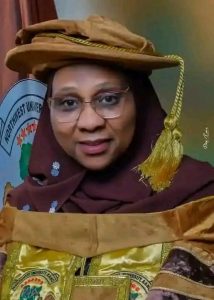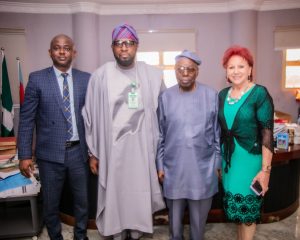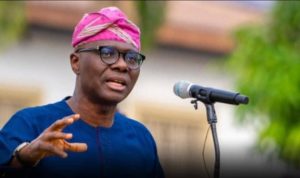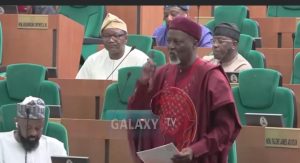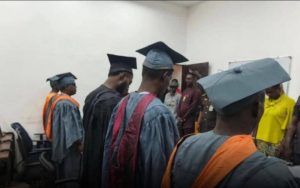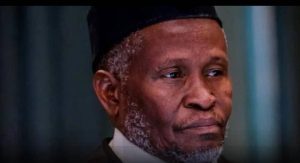Professor Ismail Adegboyega Ibraheem of the Department of Mass Communication in University of Lagos has called for a reformation of media practices to prioritize ethical reporting, factual analysis, and historical integrity.
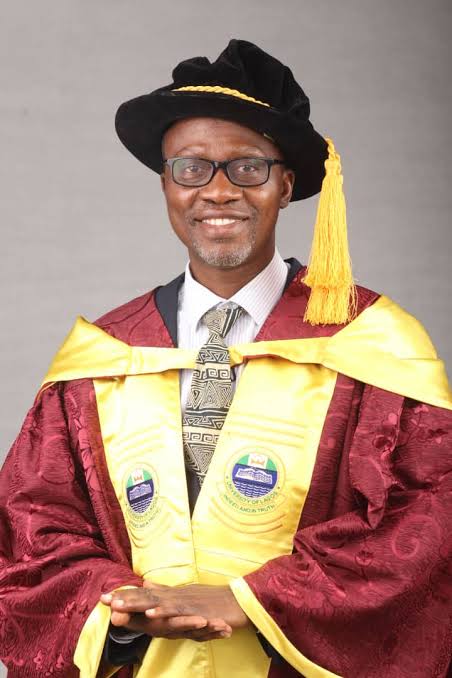
He stressed this position amongst other recommendations during the delivery of the university’s fifth (5th) inaugural lecture in the 2024/2025 academic session on Wednesday, December 18, 2024.
Titled “Casino-Journalism and the End of History“, the event which marked the final inaugural lecture of the year 2024 at the university, attracted a vast audience, both in-person and virtually at the renowned J. F. Ade-Ajayi Auditorium.
Drawing from his vast expertise in journalism, communication studies, and international relations, Professor Ibraheem shed light on the crucial relationship between media integrity and democratic resilience.
His thought-provoking lecture, introduced the concept of Casino Journalism, which he described as a sensational and profit-driven form of media that prioritizes entertainment and viral content, over factual, ethical reporting.
This practice, he argued, compromises the quality of public discourse, reduces critical issues to soundbites, and undermines informed civic participation.
The lecture referenced several infamous cases in Nigerian media history among which is; the Abacha 2 Million Man March which, he explained, was misrepresented by a sensationalized narrative from the Civil Liberties Organisation (CLO).
He argued that the CLO’s use of ‘Casino journalism’ tactics to delegitimize the march not only amplified sensationalism but also diverted attention from the deeper issues of governance, human rights, and democracy.
With casino-journalism particularly prevalent in Nigeria, Professor Ibraheem drew the audience’s attention to other far-reaching examples that underscore how stories about politics, corruption and social crises are often embellished to capture public’s attention.
Some of them include the Dasuki Arms Scandal (2015-Present); the Process and Industrial Developments (P&ID) scandal which is one of the most significant and controversial cases of alleged corruption; Halliburton Scandal (2002); the Alison-Madueke (2010-2015) and Ibrahim Magu corruption Scandal 2020.
Delving into the “End of History”; a dangerous trend in which critical reflection on societal and historical issues is replaced by a complacent and oversimplified understanding, the lecturer whose interdisciplinary collaborations focuses on tackling evolving challenges of the media world averred that journalism often fails to challenge power structures, and instead, becomes complicit in perpetuating superficial narratives that serve the interests of the powerful, rather than the public good.In this environment, Professor Ibraheem cautioned that this trend jeopardizes democracy by encouraging passive citizenship, where complex political and social issues are reduced to headline-driven content devoid of depth.
The short-term gains of sensationalism, he warned, are ultimately harmful to democratic engagement and historical accuracy.
He also pointed to his ongoing research initiatives as part of his broader call to action. His Vibrant Openness Index for Communication and Expression (VOICE) project, supported by the Netherlands Embassy, seeks to measure press freedom across Nigeria’s 36 states and the Federal Capital Territory.
Through this project, he aims to provide data-driven insights to guide media reforms and strengthen democratic accountability in the country.
In his closing remarks, Professor Ibraheem stressed the importance of a responsible media system that empowers citizens, fosters critical engagement, and serves as a vigilant watchdog for democracy.
He argued that the media must reject sensationalism in favor of deep, ethical journalism that informs and educates the public.






